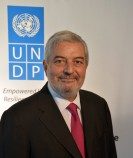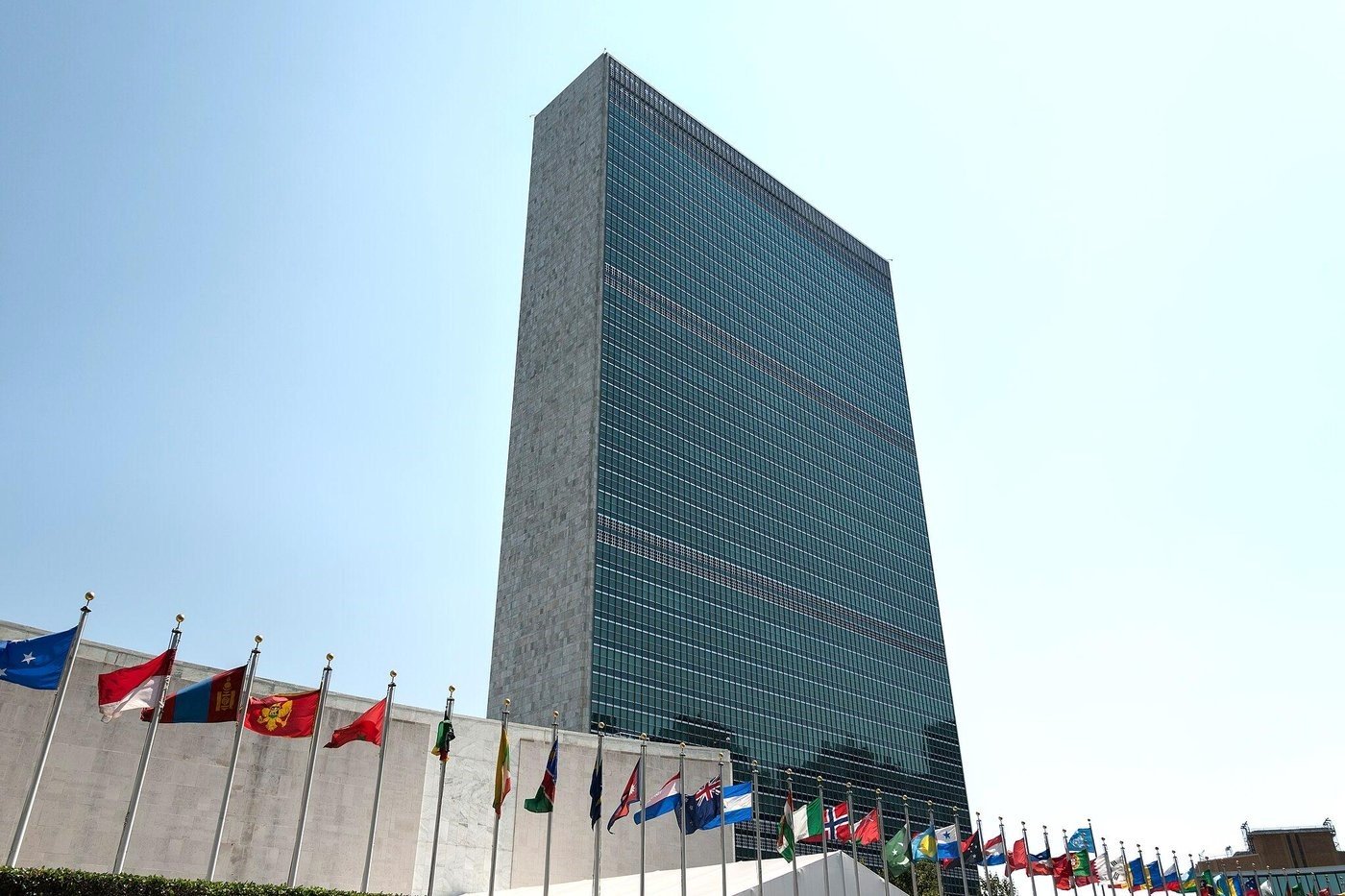EDITOR’S NOTE: THIS PIECE IS PART OF A SERIES EXPLORING THE SUSTAINABLE DEVELOPMENT GOALS. SEE THE INTRODUCTION TO THE SERIES HERE.
Building Peaceful, Just and Inclusive Societies: a condition sine qua non for achieving the 2030 Sustainable Development Agenda
2015 was a “once-in-a-generation year” for the development community, as global commitments were made that will have a major impact on the future of people and our planet. Most important among them was the agreement on the 2030 sustainable development agenda “Transforming our World,” approved by all UN member states at a Special Summit in September in New York.
For many years to come, this agenda for peace, prosperity, planet, people and partnerships will influence national policies and related budget allocations.
The 2030 Agenda for Global Action with its 17 Sustainable Development Goals (SDGs) and 169 targets builds on the legacy of the eight Millennium Development Goals (MDGs) that targeted poverty and hunger, health, education, gender equality, the environment and global partnerships.
In contrast with the MDGs that were targeting the developing countries, the SDGs are universal, applying to all Member States. They are also far more ambitious than the MDGs as they address not only the social but also the economic, environmental and political dimensions of sustainable development with goals on the reduction of inequalities, infrastructure, energy, peaceful societies and other new areas.
The SDGs aim to steer the world towards a safer and more peaceful environment and more sustainable consumption and production patterns, while also enshrining a global commitment “to leave no-one behind”: not in the delivery of services nor when it comes to engaging people in decision making.
Agreement on the new agenda benefited from an unprecedented process of national, regional and global consultations, that enabled millions of people around the world to share their views on future development priorities. Health, education, and jobs were top priorities but it came as no surprise that “honest and responsive governance” was also highly valued.
People decisively called for a new agenda built on human rights and universal values of equality, justice and security. Better governance underpinned many of their calls.
Reflecting the hopes and aspirations of those consulted, the Outcome Document for the 2030 Agenda, therefore, includes an explicit recognition that “there can be no peace without sustainable development and no sustainable development without peace.”
This sounds seductively simple, but the relationship between peace and development is complex, and bringing the two things together has proved frustratingly elusive in the past. The difference, this time, is that the commitment to sustaining peace has been enshrined in a formal development goal at the international level – the famous “Goal 16” – requiring Member States to “promote peaceful and inclusive societies for sustainable development, provide access to justice for all and build effective, accountable and inclusive institutions at all levels.”
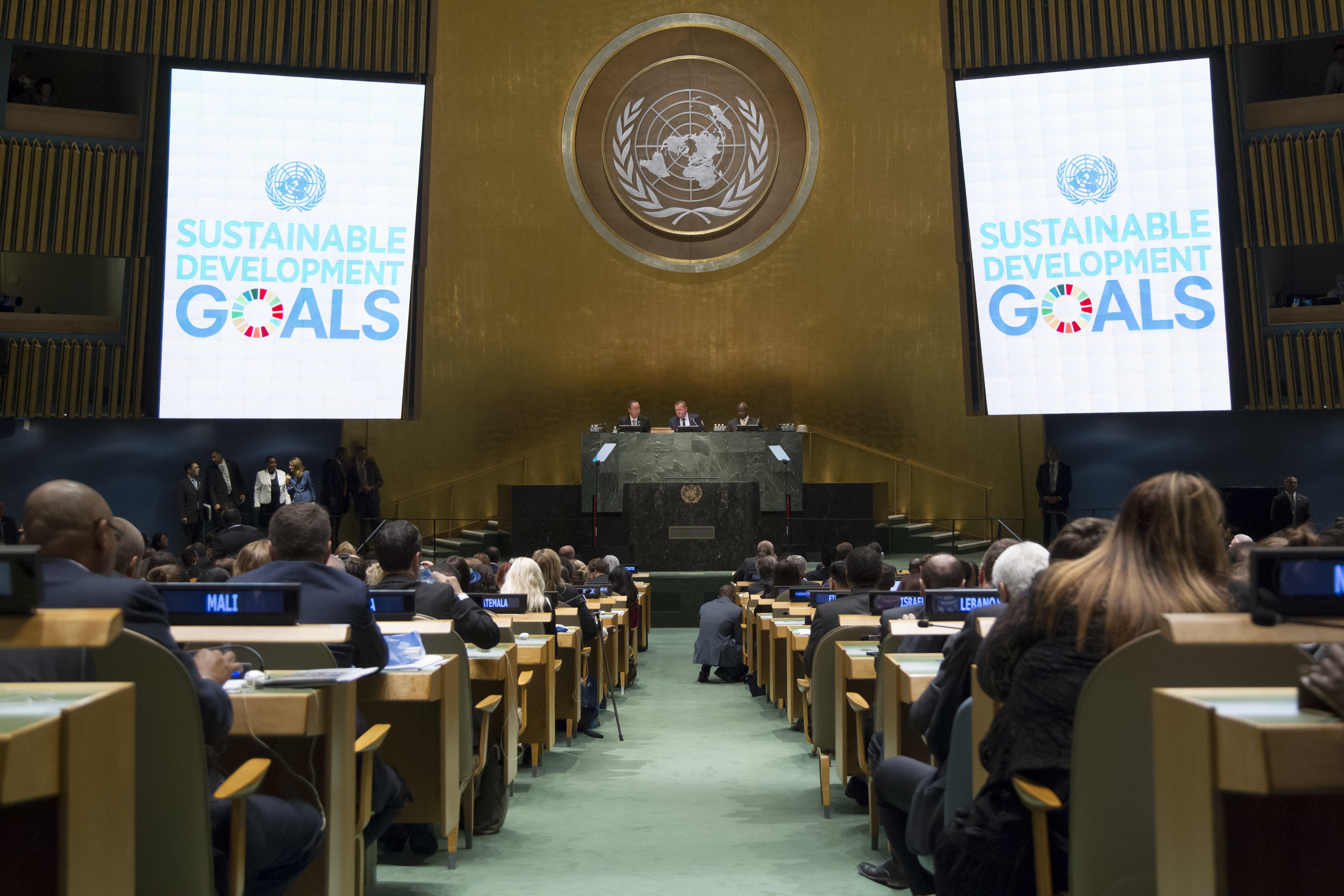
In defining this obligation in more detail, the targets contained in Goal 16 include:
- reducing rates of death from violence
- reducing violence against children
- promoting access to justice and providing legal identity
- reducing illicit flows of finance and arms
- tackling organised crime, and reducing all forms of bribery and corruption
Other targets expect progress on the development of effective, accountable and transparent institutions, on participatory decision-making, on ensuring access to public information and the protection of fundamental freedoms and promoting and enforcing laws against discrimination.
There are also targets for broadening participation in the institutions of global governance, and a commitment to international cooperation for strengthening capacity to combat violence, terrorism and crime as part of the means of implementation.
Goal 16 is not only a valuable and important aspiration in its own right, it is also a key enabling goal for the entire sustainable development agenda. ‘If Goal 16 were universally achieved, the conflicts we see destroying lives and hopes and driving so many desperate and dangerous journeys to other lands could become a challenge of the past.’
But for that to happen, there need to be greater efforts to address the drivers of conflict and instability, and make the governance of development more inclusive and effective.
Why the need to focus on peace and more inclusive societies
Today, more than 65 million people are forcibly displaced worldwide, the highest number since World War II.
Violence and armed conflict prompt people to flee their homes, looking for a safer place within their countries or across international borders as asylum seekers or refugees. At the end of 2015, there were 21.3 million refugees, 3.2 million people in the process of seeking asylum, and 40.8 million people internally displaced within their own countries. More than 1 million refugees and migrants arrived in Europe across the Mediterranean last year; thousands taking the same route, however, did not make it, their lives ending tragically in search for a better future.
The movement of people, while bringing many benefits to societies, has also generated new challenges of co-existence as societies are becoming more diverse and multi-cultural, requiring new models of governance to better manage co-habitation and integration, based on tolerance and a culture of global citizenship.
The UN Secretary General Ban Ki Moon warned that: “divisive political rhetoric on asylum and migration issues … have become increasingly visible in certain regions, and the spirit of shared responsibility has been replaced by a hate-filled narrative of intolerance. We see a worrisome increase in the use of detention and in the construction of fences and other barriers.
The drivers of migration include:
- persistent poverty and lack of opportunities
- violence and conflict
- the disruptive effects of climate change on livelihoods
The solution to these problems is not to close borders but to ensure that all over the world, we build peaceful, just and inclusive societies that offer people opportunity and security so that “migration becomes a matter of choice, not a decision forced on people because of lack of hope in the future.”
Where safety is routinely and casually under threat, where people are systematically excluded from economic and political opportunities or denied justice in the face of outright violation of their human rights, it will be impossible to ensure that lasting improvements are made to reduce the inequalities that cause so much frustration and anger around the world.
A universal agenda that calls for collaborative action at the local level
The universal nature of the 2030 Agenda means that the call for security, justice and inclusion is no longer only heard in the poor neighbourhoods of the fragile and conflict-affected countries. Developed countries have substantial development challenges too.
Violence is not confined to conflict situations only – about 90% of violent deaths in the world occur in non-conflict situations – 437,000 people were victims of intentional homicide in 2012. People in all societies, cities and communities around the world share the same concerns: the ability to take care of their daily business and send children to school without fear of violence, to resolve different sorts of disputes through a functioning justice system when the need arises, to express views freely in private discussions as well as in public processes, to contribute meaningfully to decisions that affect their lives, and to be confident that effective institutions are in place to sustain peace and deliver basic services to families and communities without interruption or the need for bribes.
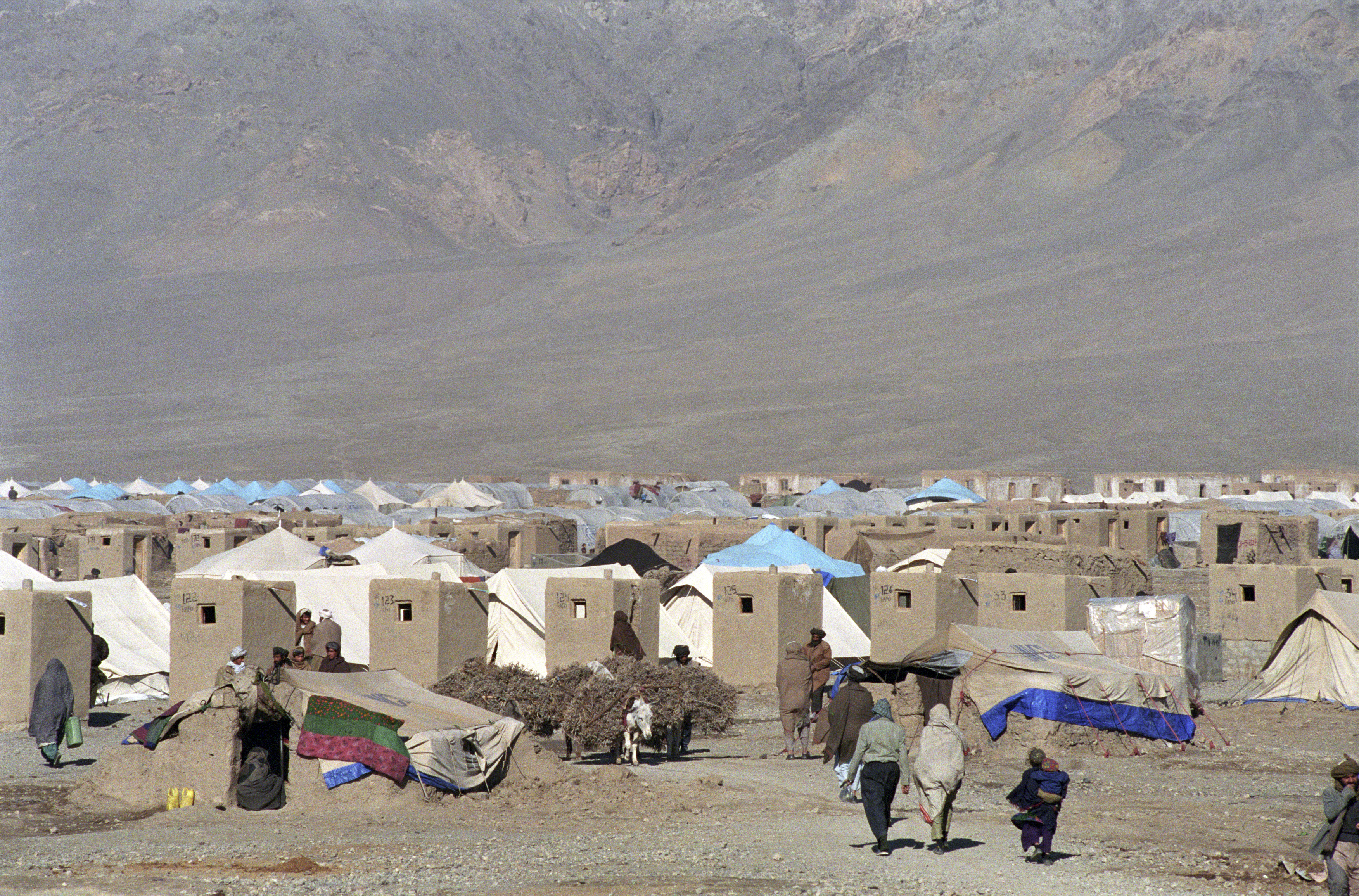
This is why the focus on peaceful, just and inclusive societies is timely. The world, in general, may have become more prosperous, but if we do not pay attention to the root causes of poverty, inequality, exclusion and discrimination, then we may continue to see the epidemic mix of violence, migration, populism, xenophobia and growing instability that we are witnessing today.
Against this troubling backdrop, Member States have a unique opportunity to act through the 2030 Agenda, and the UN system as a whole has a historic duty to support those efforts.
To start delivering on that obligation, the UN Development Group has developed the “MAPS” approach (Mainstreaming, Acceleration and Policy Support) to guide implementation of the SDGs. This is designed to assist countries to “mainstream” the agenda into national, sub-national and local plans for development and subsequently into budget allocations, to “accelerate” progress by clearing bottlenecks that hamper progress and focusing resources on priority areas for maximum impact, and to draw on “policy support” to generate the skills and expertise available from the different parts of the UN system.
The emphasis in the MAPS approach on the local level is particularly important because the success of delivering effective and inclusive governance and sustaining peace will depend on the quality of the efforts undertaken in the communities most at risk of being left behind.
This is where UN planning processes will need to work across the different pillars of the UN system – addressing development needs alongside peacebuilding priorities, and in the context of protecting human rights and meeting humanitarian needs.
The new focus on peace, justice and inclusion in delivering the 2030 Agenda will play a significant role in making sure that sustaining peace will truly benefit the most vulnerable people in the world, and those most at risk of being left behind by other development efforts.
Delivering on Goal 16 for peaceful, just and inclusive societies – the importance of context
The targets of Goal 16 are deliberately ambitious and challenging because of a failure to attend to one or more of the main drivers of violence, injustice and exclusion will undermine efforts to overcome others. As a result, a systematic focus on Goal 16 will help to make a discernible difference to the lives of the poorest and most vulnerable people in all countries.
But progress on Goal 16 as a stand-alone objective is not sufficient to deliver peaceful, just and inclusive societies.
Successful implementation of the 2030 agenda will depend on a good understanding of the complex interlinkages between Goal 16 and other parts of the agenda, including inter alia:
- promoting a culture of peace through education in Goal 4,
- gender equality in Goal 5,
- curbing corruption in health (Goal 3), education (Goal 4) and infrastructure (Goal 9),
- addressing the challenges of growing inequalities (Goal 10),
- and promoting safe cities (Goal 11).
Over half of the world’s population now lives in urban areas and that proportion is expected to rise to 66 percent by 2050(8).
Hence, building peaceful, just and inclusive societies will increasingly be materialised at the level of our cities and municipalities.
While Goal 16 has a target on effective, transparent and accountable institutions, it is obvious that most if not all of the targets under all other goals will require a robust institutional capacity to translate global priorities into real progress at national and local levels.
Good institutions are the building blocks of a prosperous and sustainable future.
But breaking down current institutional barriers to progress will require attention to changing organisational structures, enhancing leadership, ensuring voice and participation, improving accountability and promoting coordination and partnerships. In the face of these complexities, countries are trying to make sense of the apparently daunting – and expensive – array of topics to be tackled simultaneously.
Pioneering work has been undertaken by a small group of countries – Albania, Indonesia, Rwanda, Tunisia and the UK – that started in the latter part of 2014 to test what implementing Goal 16 would mean for each of them in practice. A key message emerging from the final report on this work is that each country must find its own pathway to the most appropriate mix of approaches to achieving peaceful, just and inclusive societies. It is now widely acknowledged that a single model of governance cannot and should not be imposed as part of global development aspirations.
Governance varies across contexts and cultures and evolves in response to a number of socio-cultural, political and economic factors. The new consensus is to accept divergence in the way countries develop and improve their systems of governance, but reaffirm the global norms and standards agreed upon by member states.

Measuring progress on building peaceful, just and inclusive societies
During the discussions on the post 2015, some concerns were raised with how such a goal could be measured, and how broadly-defined universal targets and indicators could be translated at the national level. Indeed, unlike other elements of the 2030 Agenda – health, education, and sanitation, for example, which were part of the MDGs – commitments to peace, justice and inclusion have not been measured systematically before as part of a global agenda agreed by the Member States of the United Nations.
Much effort over the past two years has been devoted to answering that question, resulting in the adoption by the UN Statistical Commission of a set of global indicators, including for the targets under Goal 16, in April 2016. As part of this process, in March 2015, the UN Statistical Commission endorsed the Praia City Group on Governance Statistics, mandated to address the conceptualization, methodology and instruments for producing statistics related to governance, peace and security relevant to Goal 16.
To support the wider debate on governance statistics, UNDP also convened a forum of experts in a “Virtual Network” from a range of different disciplines covering all aspects of Goal 16. The resulting Sourcebook on Indicators for Goal 16 prepared by the Virtual Network stands as a contribution to the work of the Praia Group in pursuit of solutions for implementation of Goal 16.
For a full mindmap containing additional related articles and photos, visit #SDGStories
Four important findings can be derived from the discussions on governance and peace related indicators.
First, more data is available on the Goal 16 related targets than is often assumed.
Examples of such efforts are initiatives like SHASA (Strategy for the Harmonisation of Statistics in Africa on Governance), the African Peer Review Mechanism, Mo- Ibrahim Foundation Annual Index of African Governance, and the indicators developed under the New Deal for Engagement in Fragile States to name just a few. In addition, many states are already reporting on various governance commitments they have made, such as those enshrined in the UN Convention against Corruption (UNCAC) or the Open Government Partnership (OGP).
A number of countries have also begun to develop relevant tools for monitoring progress. The Institute of Statistics in Tunisia, for example, is finalizing a citizen survey on governance, peace, and democracy. The National Institute of Statistics of Cape Verde also collects and analyses perceptions and experiences of citizens in the areas of governance and security, and the results are debated in the National Assembly. The Rwanda Governance Board (RGB) publishes the Rwanda Governance Scorecard that measures and assesses governance in Rwanda and provides recommendations to the government on areas for improvement.
Second, there will be a need for a variety of data from different sources – surveys, administrative records, expert assessments – to be able to measure progress on Goal 16 with a reasonable degree of accuracy. The successful implementation and monitoring of the post-2015 agenda will not only require improved capacity of national statistics offices, but there is also a need for better collaboration between data collectors and statisticians from government, civil society, academia and the international community and above all, a mutual trust in the usefulness and reliability of the data collected.
Third, given the wide variations in context, the global set of indicators developed under the auspices of the UN Statistical Commission needs to be complemented by indicators at the regional and national level.
Fourth, disaggregation of data is essential to detect differences in access to resources, services, benefits and opportunities between ethnic, religious, gender, age, income and other groups.
Conclusion
Today, sustainable development is no longer something that needs to be addressed in the least developed countries and fragile environments only. The agenda is universal and each country has to make efforts to ensure global progress(11).
Around the world, UNDP has worked to expand access to justice, establish effective institutions, develop the capacity of parliaments, conduct fair and transparent elections, and promote human rights, accountability and transparency. Our efforts to advance our work on democratic governance and conflict prevention are investments in peace and stability as they enable rights to be upheld and differences to be resolved peacefully.
Much more can and needs to be done to ensure that no-one gets left behind.
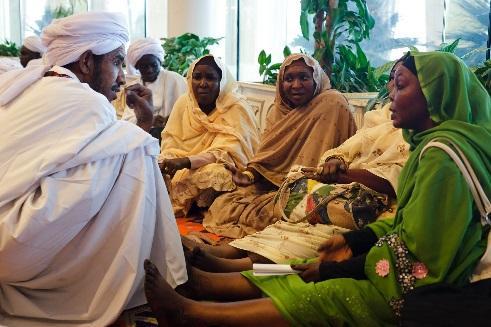
With strong partnerships and the necessary resources, by 2030 we hope to build a world that no longer harbors the human tragedies that dominate today’s headlines. That will require a sea change on inclusive and effective governance, equity, human rights, and the rule of law. Development actors can contribute to making this happen but national and local leaders must play their role and work closely with local champions – women and men, young and old – helping to build safer communities and address injustice.
The more a society provides opportunities for different groups to peacefully exchange their views and come to a mutual understanding of the challenges and solutions, the greater also the chance of fostering social cohesion in society, underpinned by a trust in institutions and respect for diversity in opinion, faith, culture and lifestyles.
Whether we embrace it or not, the future of humanity is a future of co-existence within peaceful, just and inclusive societies. But that can only be achieved in a world that thrives on hope, not fear and despair.



